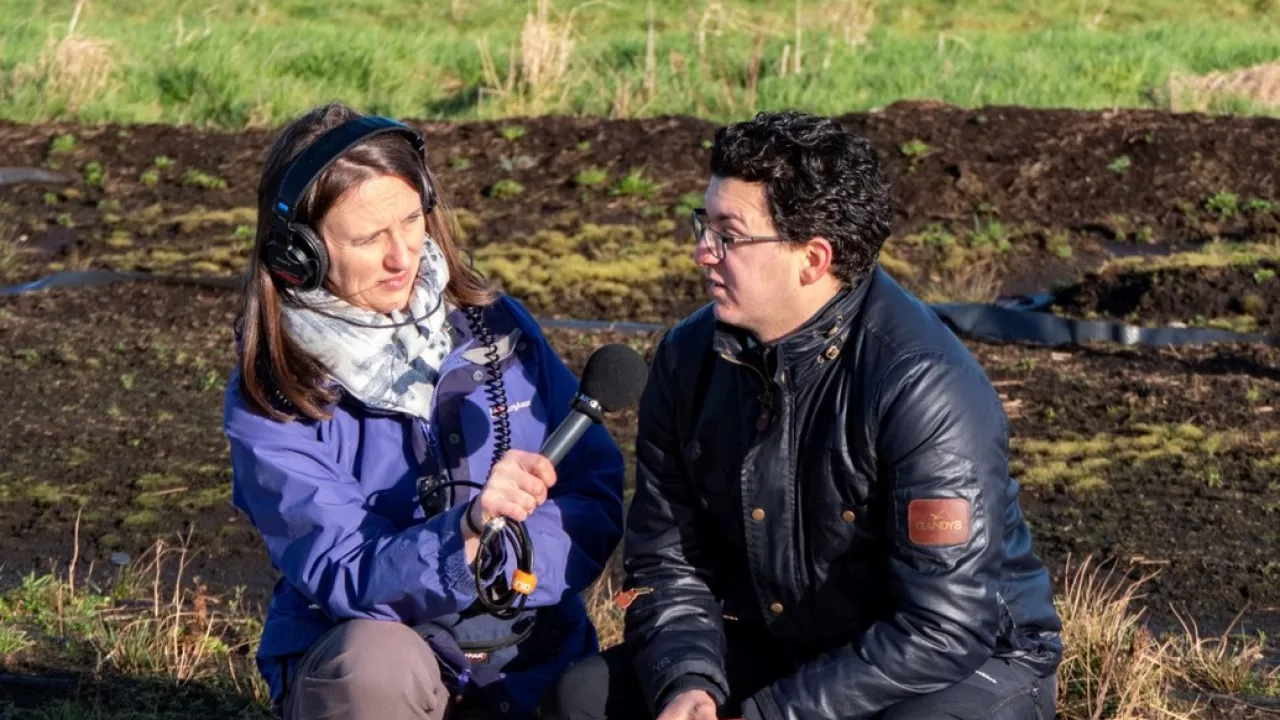Peatlands are Cinderella habitat, UEL academic says
Peatlands are Cinderella habitat, UEL academic says
Published
07 February 2020
Share
While political parties are falling over themselves to demonstrate their concern about the climate crisis by promising to plant millions of trees, these headline-attracting commitments, while welcome, fail to highlight the need for far more urgent action across another part of the UK landscape - our peatlands, which represent our tropical rainforest for carbon, water and so much more.
Our peatlands are our most extensive semi-natural habitat, up to twice the total area of woodlands in the UK. They are wetlands that contain more carbon than all our vegetation combined and have been successful carbon capture systems for almost 10,000 years. Yet peatlands are all-but invisible because the peat is hidden below ground - like Cinderella, forever hidden in the kitchen.
You are in a spaceship - Spaceship Earth - and a toxic gas is filling the cabin. Do you begin devising and constructing devices to capture this gas or do you first hunt down the source of the gas and plug it? The priority would seem to be clear; planting trees is like building a gas-capture device that may eventually help the situation, but plugging the leak from our battered Cinderella habitat - our peatlands - is a much more immediate priority,"
Richard Lindsay, Head of Environmental and Conservation research at UEL, said.
Peat is a popular growing medium for commercial plant growers but many peatlands have been downgraded or lost completely - and the remaining areas are now one of Britain's threatened habitats. A team at UEL, including Mr Lindsay, is working to create a sustainable alternative to peat by rewetting soils and growing sphagnum moss in fields on a commercial scale. The moss can then be dried out and processed to form a growing product.
Researchers Jack Clough and Mr Lindsay recently spoke to Radio 4 about their work. They said, "Conventional agriculture on peat soils releases carbon. A hectare of peat can contain as much carbon as a hectare of rainforest. We're working on a crop that’s a sustainable, commercial alternative."
At December's UN Climate Change Conference COP 25 in Madrid, Mr Lindsay and collaborators from the UN's Food and Agriculture Organization and the European Commission's science unit, highlighted the fact that just 30cm of peat, across an area of one hectare (100m x 100m) contains as much carbon as all the carbon stored in a similar area of tropical rainforest.
They also highlighted the fact that 30cm of peat is much easier to destroy completely - sometimes ironically, by the planting of trees - than it is to destroy all the carbon locked up in a rainforest. Recent research figures show that on average about 10 tonnes of CO2 are released per year from each hectare of drained peat soils, which is the equivalent of the total annual CO2 emissions for five average family cars - from every hectare of drained peat, and we have as much as seven million hectares of peat, an estimated 80% of which is drained or damaged - so our Cinderella peatlands are a major source of CO2 emissions.
Mr Lindsay said, "Plugging the massive leakage of CO2 from our damaged peatlands should be our first and highest priority, and it is one that can generate rapid results in terms of halting further emissions and restoring these systems back to their natural carbon-capture function while we wait for these millions of trees to grow.
"We urgently need our Cinderella habitat to come out from the shadows and take centre stage in this climate crisis."
Pictured: Jack Clough interviewed by Emily Hughes from BBC.
Share
Communications team
Contact us for press and interview requests
